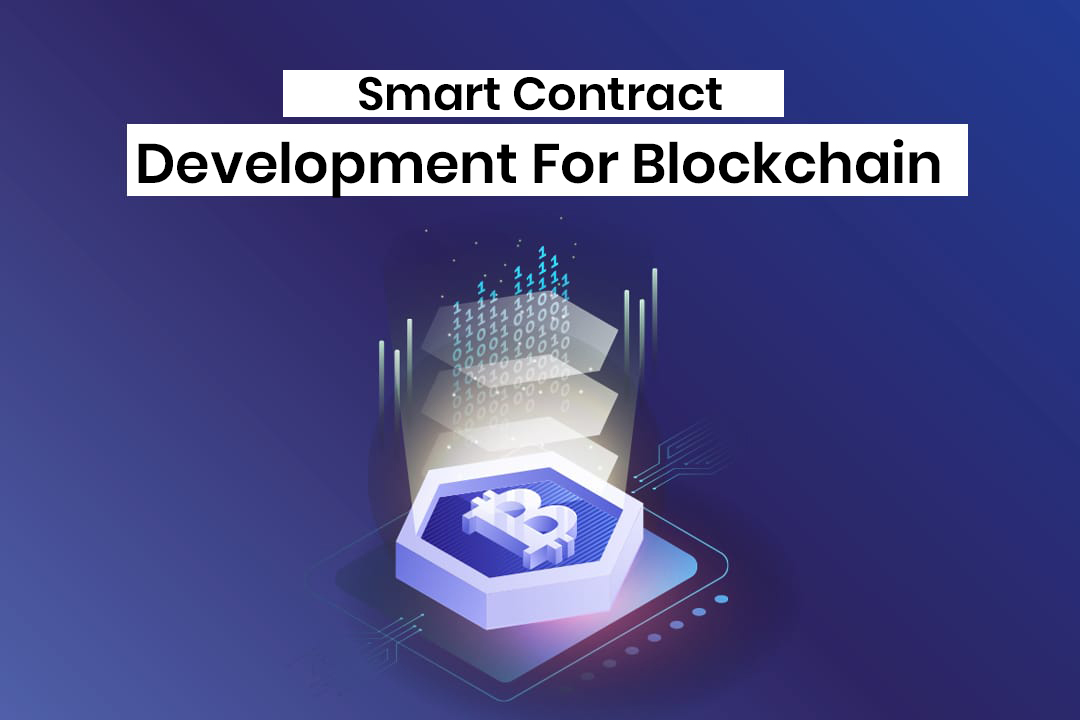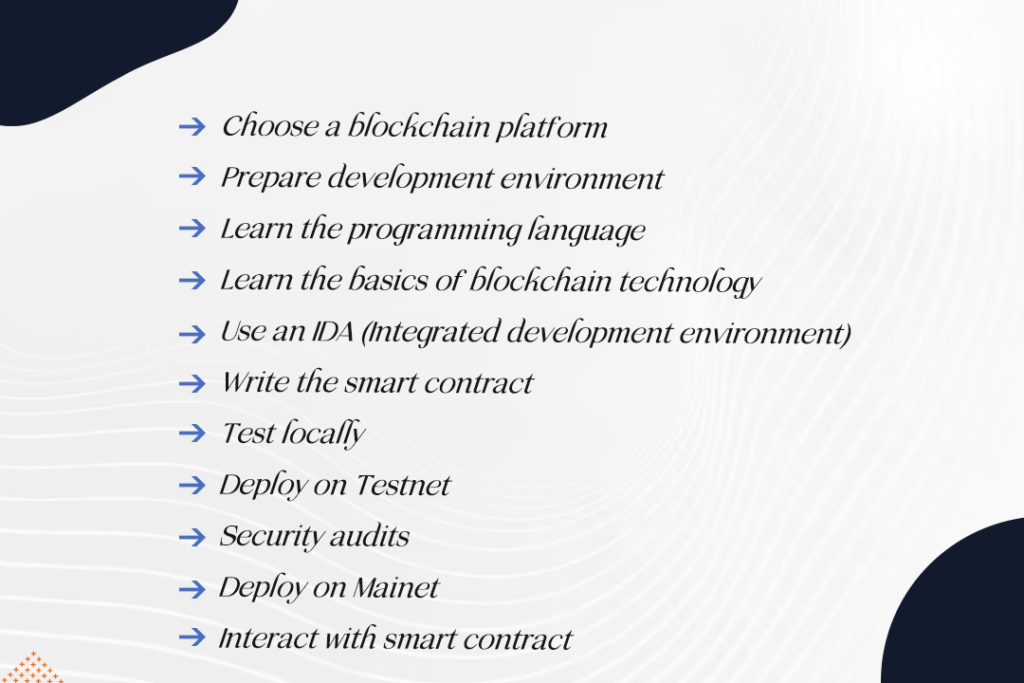Smart Contract Development For Blockchain


With the demand for blockchain technology, smart contract development is also gaining a lot of popularity. It’s a self-executing term related to agreements that are shown when specific conditions are met. It is written into the code on a blockchain platform and executes automatically without involving a middleman.
According to a report on future market insights, the market value of smart contracts was US$ 183.1 million in 2022. The market value of 2032 is estimated to reach 1,515.4 million. Furthermore, the report says that the most significant number of smart contract vendors are from North America. Not only that, but most North Americans are investing in cryptocurrency, too.
Having the data, we understand how much smart contracts contribute to the industry. Naturally, you would also like to develop smart contracts in your blockchain services. Let’s see what steps you must consider while creating it.

Some factors are essential to consider, such as scalability, security, consensus, mechanisms, and developer support. There are many choices for platforms, such as the Binance Smart Chain, Ethereum, Solana, and Polkadot. Among all of them, Ethereum is the most popular one. A mature ecosystem is available on Ethereum. Besides, a vast community of developers is also there. Initially, you need to evaluate the project requirements and priorities, and then, according to that, you can select a platform.
Here, you need to consider factors such as programming languages, support, security features, community, compatibility, and platforms. Some compatible choices would be Solidity for Ethereum, Vyper for Simplicity, and Rust for projects like Polkadot. Moreover, security audits and a robust testing framework are crucial. You need to ensure a smooth smart contract development process. For that, you must assess the ecosystem, development tools, and documents.
There are programming languages you must master first, like Solidity for Ethereum and Rust for Polkadot. With that, you must understand the concepts of blockchain, decentralized applications, and principles of smart contracts. At the same time, you need to practice creating simple smart contracts. You must learn the best practices in the industry and get real-world examples to advance your skills.
Blockchain technology has a decentralized and immutable nature. In a distributed ledger, all the data is stored in blocks, and they’re linked with the help of cryptographic hashes. So, you must understand the basic fundamental concepts like consensus, algorithms, nodes, and decentralization. Knowing smart contract language, self-executing code, automation, and enforcing agreements are essential, too. Having a solid grasp of the fundamental knowledge of blockchain will lead to effective security development.
This is an essential tool that helps streamline the process of developing blockchain-based applications. The process involves creating, testing, and deploying. The tool is made to cater to different needs while developing smart contracts. It also emphasizes focusing on languages like Solidity for Ethereum or other languages related to blockchain platforms. Some key features that IDEs include are a coding editor, smart contract compilation, debugging tools, testing environment, deployment assistant, version control integration, security auditing, and network connectivity.
You must define the logic and rules that control a blockchain-based application. Then, use a programming language that aligns with the platform you choose. For instance, Solidity for Ethereum is compatible. It’ll code the contract’s functions, conditions, and data structures. With that, ensure good implementation of security measures, which involves input validation and protection. Write using the best practices, frameworks, and libraries while smart contract development. The most popular IDEs are Remix for Ethereum, Turfile Suite, and Visual Studio Code with blockchain extensions.
To test it locally, consider using frameworks like Truffle or Hardhat. These frameworks allow you a controlled setting on your local machine where you can deploy and interact with smart contracts. This local testing ensures the smart contracts are bug-free and function well before being deployed on the Mainnet. Developers also use automated tests. There are tools like Mocha or Jest that validate the behavior of smart contracts. You get to cover different scenarios and cases to enhance reliability.
Now, deploy the smart contracts in the Testnet as it’s an essential step. Testnets such as Ropsten, Rinkeby, or Kovan are helpful. You get a natural blockchain environment without needing a real cryptocurrency. Tools such as Truffle or Hardhat and frameworks like Remix or Brownie are useful for development and testing. Once you decide, deploy the smart contract to the Testnet you’ve chosen. Then, use the respective commands to ensure a smooth integration.
To check the robustness and protection, a thorough review of the codebase is necessary, and security audits help with that. It helps in detecting potential exploits while developing smart contracts. Some key aspects that you must consider are code review, automated tools, static analysis, dynamic analysis, gas analysis, access, third-party audits, and documentation review. The whole process combines manual reviews, computerized tools, and external evaluations.
In this, several steps are involved. These steps are development, testing, gas optimization, network selection, wallet setup, compliance, deployment, transaction verification, user communication, maintenance, and documentation. For all these, a thorough preparation is needed. You must pay attention to all the details for a secure and successful deployment.
It involves sending the transactions to execute certain functionality on a decentralized application. It’s the last thing to consider in smart contract development. Users start interacting through wallets to lend, borrow, or swap assets. All these transactions get recorded on the blockchain. The interactions require cryptocurrency in terms of a fee. That fee is called gas. So, users must have some funds in their wallets to pay this fee.
Have further doubts in mind? Feel free to write your requirements and queries while reaching out to us. Our company, StakkDev Inc., offers blockchain technology services, which include smart contracts. The experts from our team will be helping you with all your doubts and concerns for your ideal project.
Leave a Reply